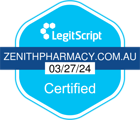If you thought you were just imagining it, then we are here to settle those doubts. Mask acne, or “maskne” is real, and people are experiencing it around the world during these unusual times. In fact, maskne is hardly a new thing; it has always been an issue for healthcare and front-line workers who wear masks for extended periods of time. Yet, as wearing masks becomes the new norm for everyone, so does the higher risk of acne that comes with it.
Luckily, you’re not alone, and there are several tips and tricks out there that will help reduce the likelihood and severity of mask acne.
Whilst we understand the complications that masks can cause when dealing with our skin, we still must stress the importance of wearing a mask during these times. Face masks have been proven to be an effective measure for reducing community transmission of COVID-19, and we strongly encourage you to continue to wear your masks to protect yourselves and the wider community. The goal is to provide some useful changes to your skincare habits that will help you combat maskne, but we ask that you continue to be diligent and responsible with your mask-wearing habits.
IMPORTANT: DO NOT DITCH YOUR MASK
What Causes Mask Acne
There are a couple of main types of maskne that have different causes and slightly different solutions. Therefore, it’s imperative to understand what type of maskne you are dealing with, so you can deal with that specific problem. Maskne can be developed because of the occlusion that occurs when wearing a tight fitted mask around the mouth. As you breathe, those droplets get trapped under the mask, along with the oil and sweat from your skin, and other skincare products. These warm, moist conditions under an occlusive barrier are the perfect recipe for clogged pores and breakouts. Everyone is somewhat susceptible to this sort of mask acne, but those with naturally oily skin are at greater risk.
Maskne can also develop from the friction and irritation caused by the mask itself. You may notice redness and dryness in the areas where your mask makes contact with your skin. This is because friction caused by a mask can impair your skin barrier, causing your skin to become dehydrated and sensitive. Dry, sensitive skin is prone to irritation issues and emergency production of sebum, both of which can lead to acne breakouts. Those with traditionally sensitive skin and previous skin conditions may find themselves dealing with this type of maskne on a regular basis.
Our Top 5 Tips on How to Prevent Mask Acne
1. Go Easy on the Makeup
Try to wear as little make-up as possible under your mask. Wearing makeup under a mask will increase the likelihood of clogged pores and will make you highly vulnerable to potential breakouts. If you do have to wear makeup, keep it light and make sure to remove it in the evening.
2. Simplify Your Skincare Routine
@freepick
Your skin is probably more sensitive than usual if you’ve been diligent about wearing a mask. This is compounded by the fact that a mask will intensify the delivery of products to your skin. Therefore, you want to streamline your skincare routine to avoid a higher risk of irritation. We recommend that you keep to a simple routine that uses gentle, organic ingredients and avoid strong retinols if possible.
3. A clean Face
photo by cookie_studio on freepick
Putting a mask over a clean face will do wonders for preventing maskne from occurring. Our advice is to make sure that you cleanse twice daily. Cleansing in the morning will remove any dirt and oil that could get trapped under your mask throughout the day and cause breakouts. Cleansing at night will help remove all the sweat, oil and makeup that has accumulated under the mask all day. Just make sure to use gentle soap-free cleansers to prevent any irritation that could make your acne even worse, and avoid harsh scrubbing.
4. A Clean Mask
getty images
For the same reasons, a clean mask is just as important as having a clean face. If you are using a disposable mask, make sure that you are not re-using them as there is no good way to clean the dirt, oil and bacteria that will accumulate on them. If you are using a cloth mask, it’s extremely important to wash them after every use so that you are using a fresh, clean mask every time.
5. Moisturise
4. A Clean Mask
@freepick
Moisturising has always been an effective countermeasure against acne, and it’s especially important for those who have dry or sensitive skin. Dry skin is vulnerable to inflammation that leads to clogged pores and breakouts, so it’s imperative to keep your skin healthy and hydrated. Moisturiser will also provide a barrier between the mask and your skin, which can reduce friction and chafing. This can help keep your skin barrier intact, preventing it from drying out and becoming irritated.
ASP Recommends:
Daily Facial Moisturiser 200ml is suitable for all skin types that crave hydration and moisture. It is made of natural ingredients and essential oils to form a barrier against daily skin aggressions. We recommend this Daily Facial Moisturiser to help you with the maskne battle and make your skin healthy & clear.
To prevent your skin from getting mask acne, it is vital to use cleanser that will clean and cleanse your skin thoroughly. That’s why we recommend Foaming Facial Cleanser made of pure natural ingredients to remove excess oil, grime and impurities causing you troubles.


 Zen Xiao
Zen Xiao


